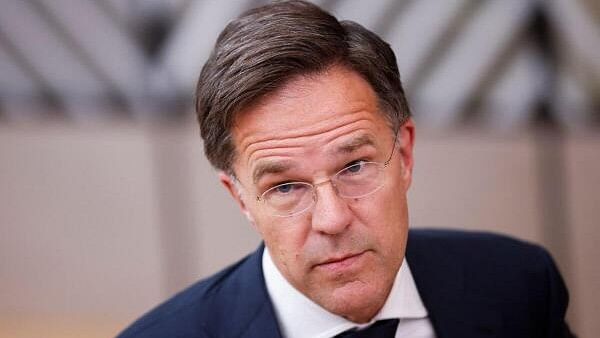
Dutch Prime Minister Mark Rutte.
Credit: PTI Photo
Slovakia supports Mark Rutte's proposed appointment as the next NATO secretary-general, Slovak President Peter Pellegrini said on Tuesday, one of the last countries in the alliance to fall in line behind the outgoing Dutch prime minister.
Slovakia had preferred a "geographically" closer candidate from central and eastern Europe, such as Romanian President Klaus Iohannis who had also sought the job, but now backs Rutte, Pellegrini said after a European Union summit in Brussels.
"After a final discussion with Mark Rutte and consultation with the Slovak government, Slovakia can imagine Mark Rutte as the NATO chief," and will support him, Pellegrini said at a news briefing broadcast live on television.
The United States, Britain, France and Germany back Rutte to succeed Jens Stoltenberg, who will step down as NATO's head in October.
NATO takes decisions by consensus, so any candidate needs the support of all 32 allies. With the nods of Slovakia and Hungary, Rutte now awaits support from just Romania.
Slovakia, which borders Ukraine, had stressed the need for the next NATO chief to help deal with the protection of Slovak airspace, Pellegrini said, after the previous Slovak government donated an S-300 system to Ukraine, and allies pulled out Patriot batteries that had been temporarily placed there.
"We will ask NATO to find somewhere in member states an air-defence system" that could be placed in Slovakia until the country has its own system, Pellegrini said.
Separately, Hungary has also dropped its opposition to Rutte, Dutch media reported on Tuesday. Turkey told its allies in April it would support Rutte.
Romania's Iohannis said in March he was running for the NATO top job, arguing Eastern European states needed better representation in Euro-Atlantic leadership roles.